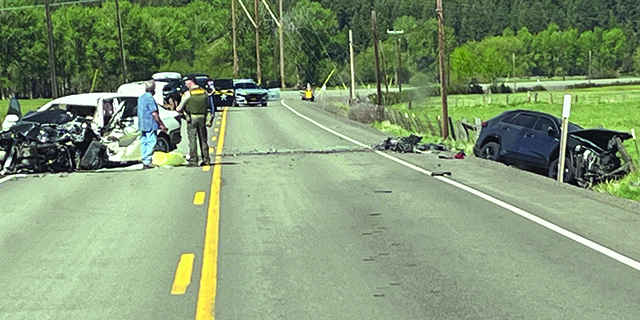Other views: Blue Mountain Forest Plan must define access upfront
Published 7:00 am Wednesday, April 5, 2023

- Johnson
While reading the story “The Government Wants You to be Terrified of Emergency Medicine,” (American Thinker, March 22, 2023) I noticed a parallel in the modus operandi of setting the parameters of process and information gathered for the Blues Intergovernmental Council (BIC) meetings.
This brought to mind a process of influencing opinions to create the end result/desires of the agencies upon the BIC members as well as the public, who are either complicit with or unaware of the meeting process.
These meetings are deficient of public testimony and, even though some county commissioners indicated they were elected to represent the public in deciding issues, this does not exclude the need for them to include public expectations into the documentation that may not support the government agency goals that are different from their constituents’ opinions.
This might also be the reason that the promotional video results on the BIC process had a very low number of views (only 190-plus) online after working for many years on this forest plan.
The Wallowa-Whitman forests are publicly owned, and for the past 50 years natural resources have not been properly managed by governmental oversight. These same agencies do not need more leeway to solve the ongoing forest problems with only a BIC approach that encompasses a large portion of the Oregon land mass. (Something is missing in this BIC process.)
It is evident that there is a need for an active, hands-on private sector involvement to solve these pressing issues other than a government-only implementation. Currently what is missing is the specific definition of natural resource valuations, the defining of peripheral economic impacts and the ability to harvest those assets (commodities) with best practice efforts. With these points in place, the essentials of understanding the opportunities can be realized and then also understood by the local and general public.
Healthy forests must be recreated so that the additional revenue streams from wood products, mineral extraction and lower cost food production (livestock grazing) can provide a stable economic basis for Oregon’s rural areas. The continuance of state or federal funding to bail out financially strapped county budgets must come to an end with a return to proper utilization of the natural resources which are so abundant in Oregon.
I was not surprised that there was no response during the BIC meeting to my observations and comments which were explained as intended on my part to be constructive in nature. The comment period for the public was brief and limited by the moderator without consideration that we gave costs, travel time, and meeting time to attend. I asked the question at this Baker City BIC meeting on March 23, “Where are the natural resource private sector (only) success stories of harvesting and mining on Oregon’s federal land over the past 50 years?”
Finally, there is no reasonable explanation that forest access should be a topic to be discussed only after other issues are first decided. Access to our forests is the number one issue on the table. The rural public does not desire such access restricted.
We live here. Many of our family activities are centered in the forest, and we care about the historic beauty that graces our communities. Therefore, the Blue Mountain Forest Plan must define access upfront within the process. Otherwise, access will be based only upon the previously decided points and therefore limited by fiat.
This would be an absolute, disgraceful decision if BIC goes this route.
Do you have a point you’d like to make or an issue you feel strongly about? Submit a letter to the editor or a guest column.





